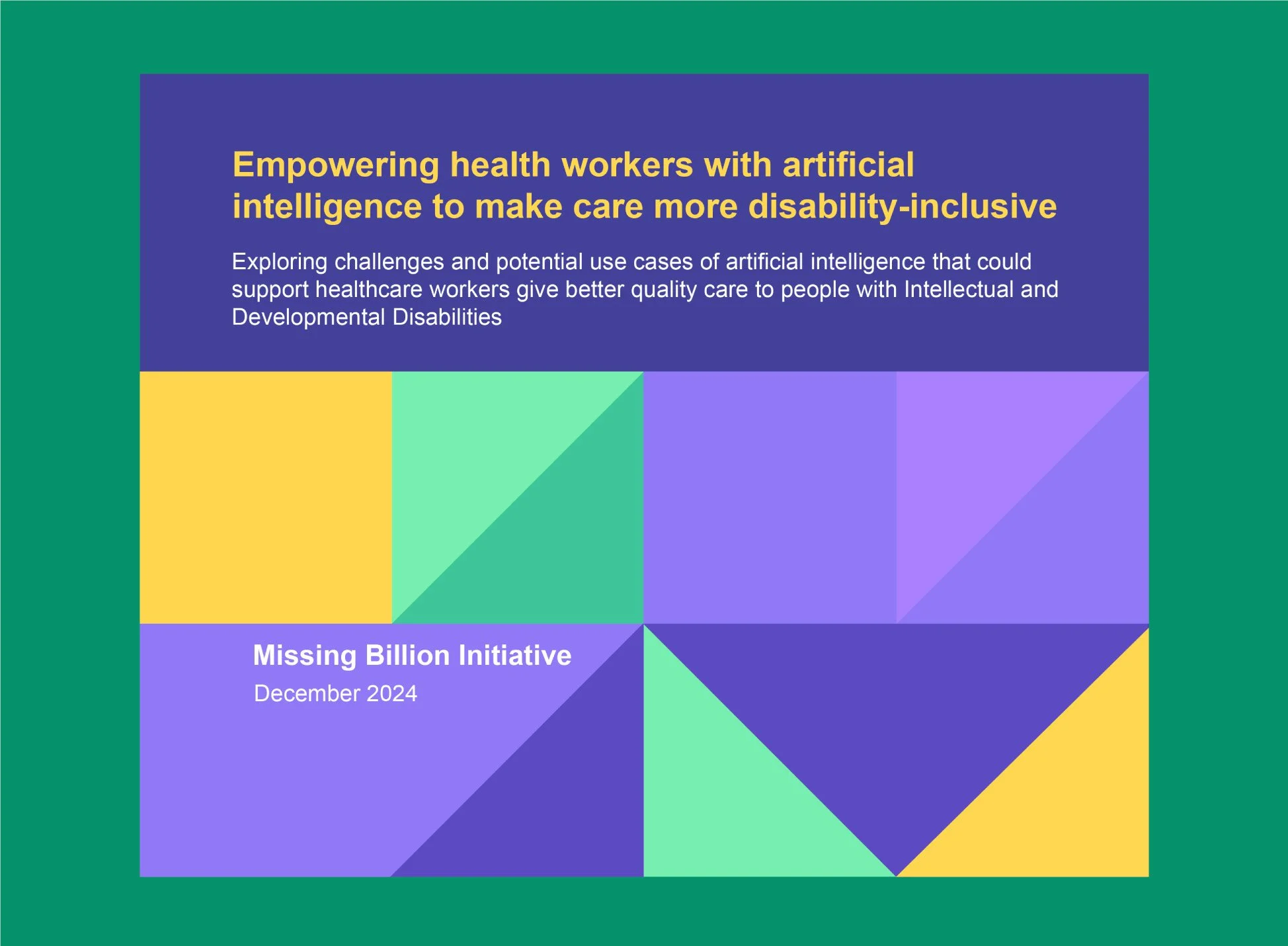Empowering health workers with artificial intelligence to make care more disability-inclusive
December 2024
This white paper explores how artificial intelligence (AI) can empower healthcare workers (HCWs) to improve health outcomes for people with Intellectual and Developmental Disabilities (IDD). Through interviews with HCWs, policymakers, and caretakers of people with disability, three common health challenges for patients with IDDs were identified, and for each one, a corresponding AI solution was conceptualized. These use-cases are preliminary concepts to be further explored and piloted.
Limited Healthcare Worker Training and Knowledge: HCWs often lack specialized training, leading to suboptimal care for IDD patients. The proposed AI solution is a Chatbot for IDD Care Soft Skills, which provides HCWs with advice on best practices when caring for patients with IDD.
Limited Patient Understanding of Medical Documents: Patients with IDD often struggle to understand complex medical documents, reducing their agency in the care process. The proposed AI solution is an EasyRead Translator, which converts complex medical documents into a standardized accessible format for patients with IDDs.
Failure of Early Intervention in Regions Without Specialists: Lack of early intervention worsens patient health. The proposed AI solution is an IDD Early Intervention Screener, which outputs potential IDD-related developmental milestone challenges and early interventions for parents to adopt.
The publishing of this report aims to foster engagement across stakeholders for collaboration opportunities to test and scale AI solutions for HCWs to provide more inclusive and quality care.

